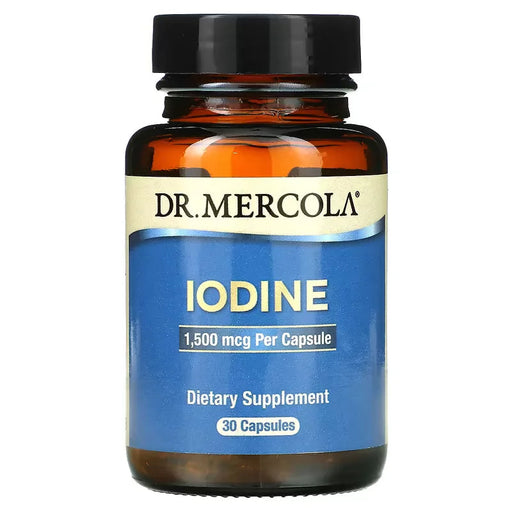Mon-Fri: 9am - 5pm
Excluding Bank Holidays
Mon - Fri: 9:00 - 17:00PM
Excluding Bank Holidays
 Free UK Delivery
On all orders over £60
Free UK Delivery
On all orders over £60
 Worldwide Shipping
With Reduced International Shipping Charges
Worldwide Shipping
With Reduced International Shipping Charges
 15% Off Your First Order
Code: FIRST15
15% Off Your First Order
Code: FIRST15
Iodine is a vital element that plays a crucial part in various significant bodily processes, such as growth, metabolism, and thyroid function. It is essential for our body to function properly. Although iodine can be obtained from seafood and other food sources, many individuals do not consume enough of it through their diet alone. This is where iodine supplements, such as iodine tablets or iodine solutions, come into the picture. By taking these supplements, we can ensure that our body receives an adequate amount of this vital nutrient to prevent iodine deficiency.
Browse Oceans Alive wide range of Iodine supplements from globally acclaimed brands including BetterYou, Dr Mercola, Higher Nature and more.
 Save 25%
Save %
Save 25%
Save %
Looking to feel amazing? Look no further than our Feel Amazing Multivitamin Gummies! These strawberry-flavored gummies are packed with 12 essential...
View full details Save 20%
Save %
Save 20%
Save %
Discover the secret to maintaining optimal thyroid function with Liquid Ionic Iodine. This concentrated liquid supplement delivers a potent dose of...
View full details Save 20%
Save %
Save 20%
Save %
Looking to support your health in a fun and natural way? Look no further than KIKI Health Organic Irish Sea Moss! Sourced from the pure ocean water...
View full details Save up to 0%
Save %
Save up to 0%
Save %
Contains Potassium Iodide. Iodine is an essential trace mineral vital for normal growth and development and also for optimal thyroid function. Now...
View full details Save 0%
Save %
Save 0%
Save %
Looking to feel amazing? Look no further than our Feel Amazing Multivitamin Gummies! These strawberry-flavored gummies are packed with 12 essential...
View full detailsIodine Deficiency and its Effects on the Body
Iodine deficiency occurs when the body does not get enough iodine to meet its requirements. This can have serious consequences on overall health. The most well-known effect of iodine deficiency is the development of goitre, which is the enlargement of the thyroid gland. Goitre is often accompanied by symptoms such as fatigue, weight gain, and dry skin.
This deficiency can lead to impaired thyroid function, resulting in a condition called hypothyroidism. This can cause a range of symptoms including sluggishness, depression, memory problems, and weight gain. It can also negatively impact fetal development, leading to cognitive and developmental impairments in children.
Iodine is a chemical element that is naturally present in the Earth's crust and is essential for the proper functioning of the human body. It is mainly used by the thyroid gland to produce thyroid hormones, which are responsible for regulating metabolism, growth, and development. These hormones also play a crucial role in maintaining energy levels, body temperature, and the health of various organs and tissues. Iodine is a dark purple-black solid at room temperature and forms a violet vapour when heated. It has a distinct colour that differentiates it from other elements. In its pure form, iodine appears as shiny crystals with a metallic lustre. However, it is important to note that iodine is rarely used or encountered in its elemental state and is usually found in combination with other elements, such as potassium or sodium. Several foods are rich in iodine and can help maintain optimal levels in the body. Seafood, such as fish, seaweed, and shellfish, is particularly high in iodine. Incorporating these foods into your diet can provide you with a natural source of iodine. The timing of iodine supplementation is a common concern for many individuals. However, there is no definitive answer as to whether it is best to take iodine supplements in the morning or at night. It ultimately depends on your personal preference and what works best for your routine.What is iodine?▼
What is iodine used for?▼
What colour is iodine?▼
What foods contain iodine?▼
Should i take iodine at night or morning?▼

